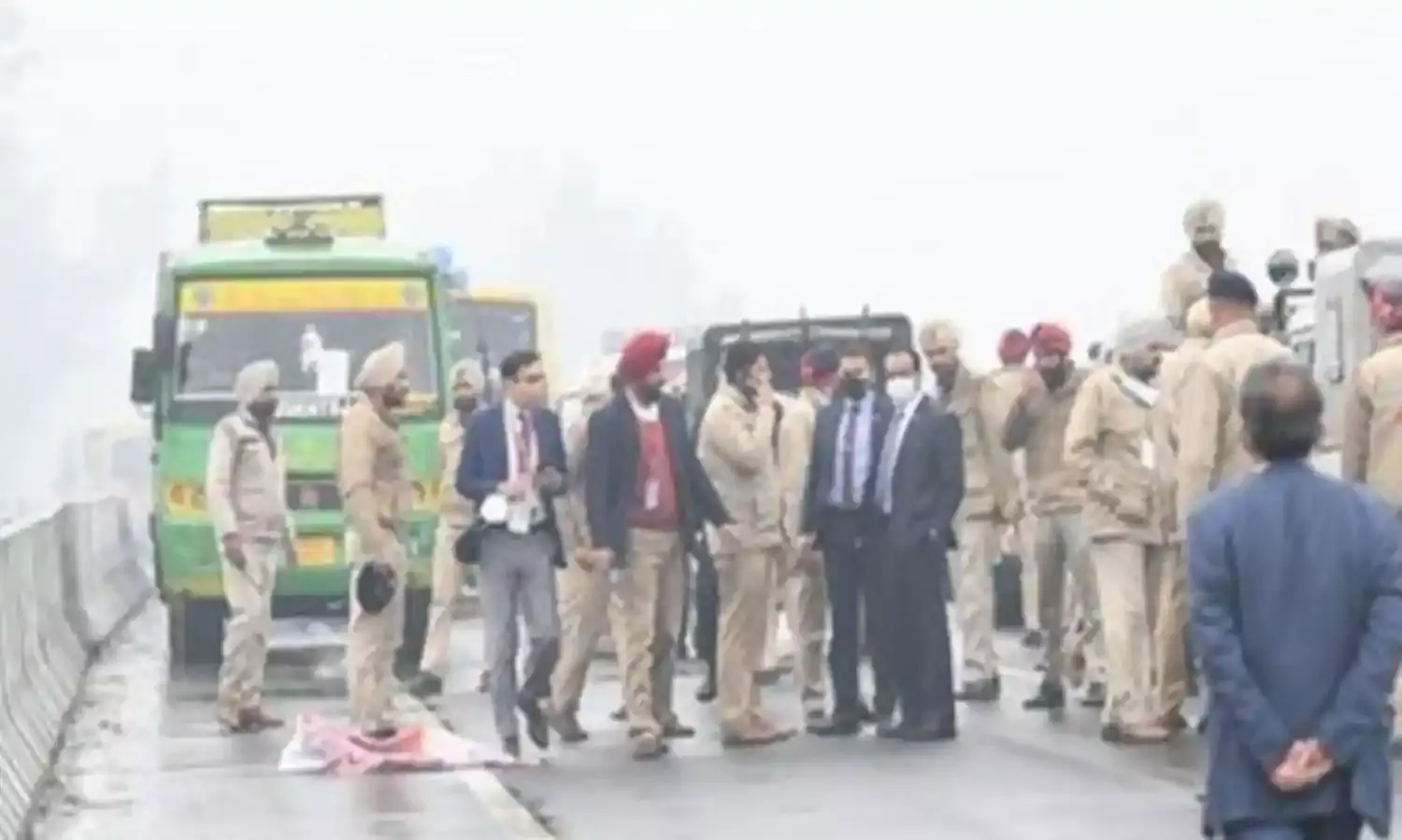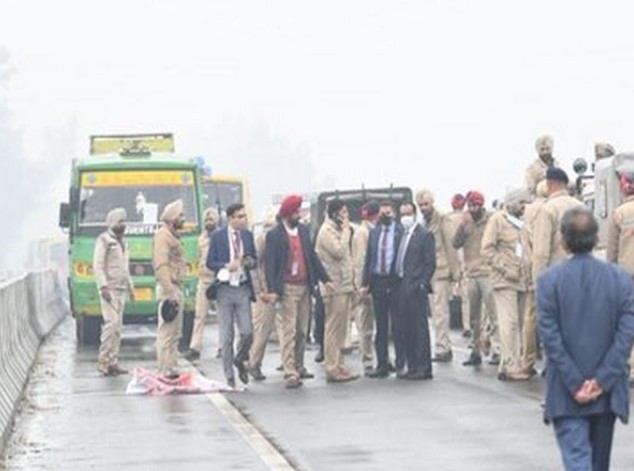Who Is Responsible For the PM’s Security Breach?
Not the farmers

There is little doubt that a serious security lapse had taken place during the visit of prime minister (PM) to Punjab on January 5. The breach of security took place the moment it was decided to take the PM by road for more than 100 km from Bhatinda to Ferozepur after he could not fly by helicopter.
The Special Protection Group (SPG), Intelligence Bureau and Punjab Police, all security agencies involved in arranging PM’s visit know it well that police deployment along such a long stretch of road would be scanty, as it was only a contingency route.
In a short time, it is almost impossible to sanitise such a long stretch of road for smooth and fast movement of the PM's car-cade. Therefore, squatting by a group of protesting farmers should not have come as a surprise in a stretch where there was little deployment of local police. In fact, the SPG should have refused to take the PM on that route even if a clearance for the same was given by the Punjab Police.
Unfortunately, neither the officers of SPG nor the Punjab Police would have the courage to tell the prime minister the unpleasant truth that a huge anger is sweeping across Punjab against him for the death of over seven hundred farmers during the agitation. In this backdrop of anger, there was always a possibility of some of the farmers coming out to hold peaceful protests to vent their anger – a democratic right guaranteed by the constitution.
Then why was this programme made? The responsibility begins with the PM's office, as it originates and coordinates the entire programme. It was its duty to make an assessment as to whether such a visit was advisable so soon after a year-long agitation by the farmers. That would mean that the PM's office lacked the basic understanding of the ground situation and perhaps believed that farmer’s agitation was over once they vacated Delhi borders.
The PM's office forgot that during the agitation, farmers had exhibited unparalleled grit and resoluteness and not allowed BJP functionaries to organise political programmes in Punjab, Haryana, and western Uttar Pradesh.
In fact, it was known beforehand that some of the farmer unions would hold peaceful protests during the PM's visit. They were losing patience over the silence of the PM towards their crucial demand for the formation of a committee to ensure the minimum support price that the government had agreed to on December 9.
The issue has now been amply clarified by ten constituents of the Samyukta Kisan Morcha (SKM) that there was no programme to stop the prime minister or obstruct his movement. SKM had only planned to hold symbolic protests and burn effigies of the prime minister to press for their pending demands, including dismissal of Ajay Kumar Mishra, Union Minister of State.
Who is then responsible for the unfortunate turn of events?
It will be difficult to pinpoint the same as the prime minister is presiding over a bureaucracy that has been systematically made incompetent by him by filling it with sycophants, loyalists, superannuated and those eyeing post retirement sinecures. None of them would venture to tell the unpleasant truths lest they lose their cushy assignments.
Same is the fate of constitutional and other institutions responsible for the smooth functioning of the government and providing services and justice to the people of the country.
More than competence and professionalism, what the present government requires is ideological commitment or at least a pretense of the same for rewards like multiple extensions in service. Decadence in professionalism was on full display when the prime minister was asked to wait for 15-20 minutes on a flyover before turning back. Staying on an elevated corridor with no escape routes is a security nightmare. This, in my understanding, was the second security failure.
The problem is that no one understood and comprehended the risks involved in travel by road. Or maybe, it was a sheer absence of professionalism and intellectual honesty. The PM should not have left Delhi in the first place after learning of the decision of the Indian Air Force (IAF) not to fly from Bhatinda in adverse weather conditions. Or, he should not have left Bhatinda airport, if the decision of IAF was not communicated in Delhi.
Then why and who decided to take the risk? Was it the PM himself without realising the institutional rot from which governance of the country suffers?
In the absence of an effective government delivery system, an indifferent and corrupt administration, the public anger is bound to grow and that will eventually spill out on the streets. If it has not been told to him by central intelligence agencies, the PM should realise that growing inequalities, rising cost of living and widespread unemployment are fuelling unrest amongst the masses and he may not be a popular leader anymore that he was before 2014 elections.
In this case, there was no threat to the PM's life, as farmers have exhibited tremendous patience despite serious provocations like mowing them down at Lakhimpur Kheri. But that doesn’t mean that the business as usual can continue for long. The governance in India needs complete overhaul to face multifarious challenges on internal and external fronts. Status quo must change for the better before it is too late.
Avinash Mohananey, a former DGP, is retired from the Intelligence Bureau.




